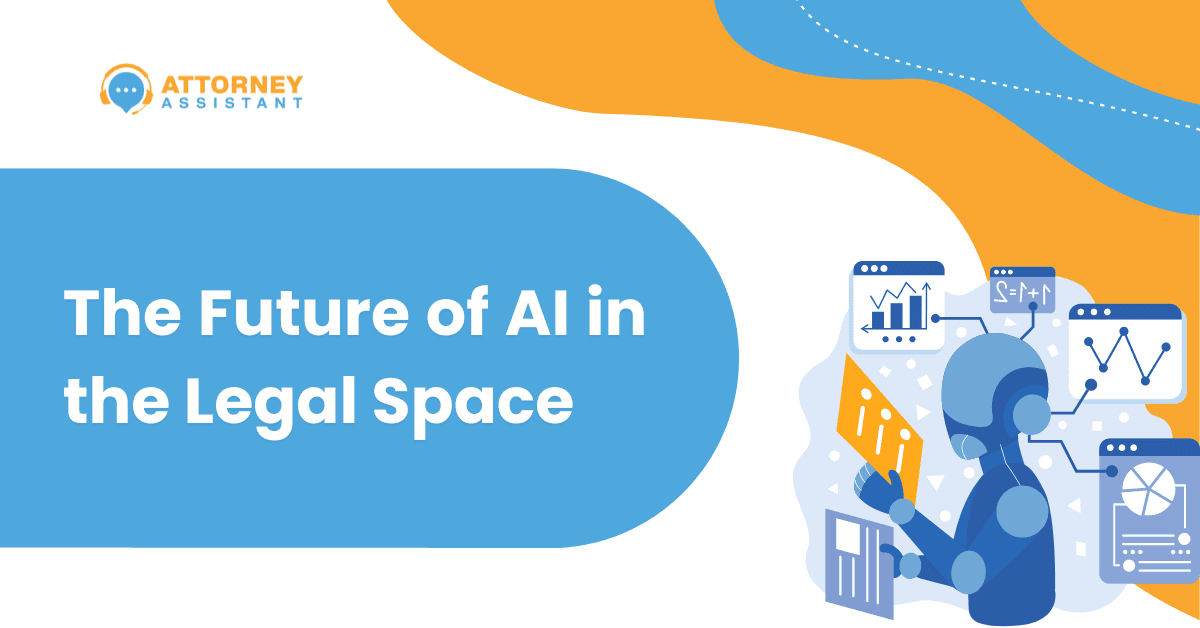Artificial intelligence isn’t just a buzzword anymore—it’s a part of our daily lives and it’s shaking up industries in a big way. One of the exciting changes is the rise of the AI lawyer in the legal world. AI is now diving into the mental and cognitive work legal professionals face daily.
Today, AI tools are already making a splash in the legal industry. They’re analyzing contracts, finding documents, and digging through legal research. AI tools are also making legal work more precise. Imagine having AI help draft legal documents, predict case outcomes, and even offer advice on court decisions. This advancement is setting the stage for a future where technology is a big player in legal processes.
Of course, this tech revolution isn’t without its hurdles. There are important issues to tackle. We need to address concerns about AI biases and decision-making transparency, ensuring it delivers justice fairly. So, let’s explore how AI is changing the legal field and what challenges and opportunities that come with this fascinating blend of technology and law.
The Intersection of AI and Law: Enhancements, Opportunities, and Human Roles
Generative AI tools are rapidly becoming a key part of legal work, improving tasks like research, drafting, and contract negotiations. Unlike earlier AI, these tools can create content and interact in ways that feel more human, making them easier for lawyers to use. Just as email changed how we do business, generative AI is set to transform the legal profession, especially for in-house lawyers. It will boost efficiency and give lawyers more time to focus on critical thinking and advising.
The Emerging AI Technologies in Law
AI is bringing new technologies that are changing how legal work is done. Here’s a look at the latest innovations in the legal practice:
Automation Tools. Automation tools streamline routine tasks like scheduling, billing, and case management. They handle these repetitive chores, allowing legal professionals to focus more on complex and strategic aspects of their work.
Machine Learning. Machine learning algorithms uncover patterns and make predictions. They refine document drafting, predict case outcomes, and offer valuable insights for better decision-making.
Natural Language Processing (NLP). NLP enhances how AI understands and generates human language. This advancement helps AI interpret complex legal texts better, draft clear and coherent documents, and provide more accurate responses to client inquiries.
The Practical Applications of AI in Legal Departments
AI isn’t just a trend anymore. It’s now a must-have tool in legal departments. Here’s how AI is making a real difference:
Automated Compliance Monitoring. AI tracks changes in laws and regulations, alerting legal teams about necessary updates and actions. This helps maintain compliance and avoid legal issues.
Client Interaction and Support. AI chatbots and virtual assistants are great for handling routine client questions and updates. This allows attorneys to focus on more complex issues while ensuring clients get timely and accurate information.
Contract Management. AI streamlines contract management. It automates tasks like contract reviews, renewal reminders, and compliance checks. It also analyzes contracts for risks and inconsistencies, helping manage obligations and reduce legal risks.
Document Review and Analysis. AI is a game-changer for handling large amounts of legal documents. It can quickly pull out key information, highlight important issues, and flag critical data, making tasks like discovery and contract analysis much faster and more efficient. This lets legal professionals spend more time on complex, valuable work.
Drafting Legal Documents. AI tools are now quite skilled at drafting legal documents. They generate initial drafts of contracts and motions by pulling from existing case law and templates. While human review is still needed for accuracy, AI speeds up drafting and makes it more cost-effective.
Enhanced Due Diligence. For mergers and acquisitions, AI analyzes large volumes of documents and data, improving due diligence. It identifies potential issues, assesses financial and legal risks, and offers detailed reports, leading to more informed decisions.
Legal Research. AI can quickly sort through extensive databases, statutes, and case law to find relevant information. It can also analyze past data to predict legal trends and outcomes, helping lawyers develop better strategies.
Predictive Analytics. AI-driven analytics help legal departments forecast case outcomes and assess risks. By analyzing historical data, AI provides insights into the success of legal strategies, aiding in smarter decision-making.
Advantages of an AI Lawyer
AI is revolutionizing the legal field, enhancing efficiency and refining service delivery. Here’s how it’s changing the way legal work is done:
Access to Justice. AI helps make legal services more accessible to the public, broadening access to legal support.
Enhancing In-House Client Service. With AI handling routine tasks, legal professionals can concentrate on personalized client interactions and strategic advising. This improves client service, response times, and overall satisfaction.
Organizational Efficiency. AI aids in legal research by finding authoritative sources, extracting key information, and providing useful summaries. This helps an AI lawyer make better decisions and stay competitive.
Quality Assurance in Legal Documentation. AI enhances accuracy in legal document reviews by quickly summarizing and identifying discrepancies. This results in more reliable and precise document analysis.
Reducing Workload and Stress. AI automates repetitive tasks. This reduces the legal staff workload, leading to less stress and higher job satisfaction. It allows lawyers to focus on more valuable, strategic work.
Risk Assessment and Compliance. AI keeps track of regulatory changes and updates. This helps AI lawyers stay compliant and manage risks effectively. It also analyzes large datasets to spot potential issues, offering preventive guidance.
Strategic Decision-Making. AI analyzes past cases, predicts risks, and offers insights based on trends and data. While human expertise is crucial, this supports strategic decisions.
Streamlining Legal Processes. AI saves valuable time by speeding up tasks like document review, proofreading, and legal research. This reduces the workload, helps prevent errors, and decreases burnout by handling routine tasks.
Challenges of AI in Legal Practice
Yes, AI offers great opportunities for the legal sector. However, it also comes with its own set of challenges. It’s important to understand these issues when integrating AI into your legal practice:
Data Quality. AI systems need good data to work well. If the data is inaccurate, biased, or incomplete, the AI’s results can be off. This can impact how reliable the AI tools and recommendations are in legal practice.
Ethics and Confidentiality. Handling sensitive client information with AI requires extra caution. If AI tools aren’t well-secured or don’t follow strict confidentiality standards, there’s a risk of data breaches or misuse. It’s essential to ensure AI respects privacy to maintain client trust.
Initial Costs. Setting up AI in a legal practice can be expensive. You’ll need to buy the software, integrate it with your existing systems, and train your team. It’s a big investment upfront, but it’s meant to boost efficiency and save money in the long run.
Job Displacement. While AI can handle repetitive tasks, leading to job losses in roles focused on those tasks, it’s also creating new opportunities. The key is finding the balance between embracing technology and supporting the workforce through the transition.
Lack of Emotional Intelligence. AI doesn’t have emotions or the personal touch needed for client interactions and courtroom dynamics. Building relationships and offering empathetic support are areas where human lawyers excel, and AI can’t quite fill those shoes.
Understanding Context. AI sometimes struggles with the nuances and complexities of legal arguments or unique case details. It might not always get the context right, which can lead to recommendations that miss the finer points of a case.
Potential for Misuse. AI could be used to generate frivolous or unethical legal claims. Have safeguards and regulations in place to prevent misuse, ensuring it is used responsibly and ethically.
Overreliance. Relying too heavily on AI could dull your critical thinking and analytical skills. AI should complement your expertise, not take over your decision-making.
While AI offers amazing possibilities for improving efficiency and accuracy in legal practice, navigate these challenges thoughtfully. Balancing technology with human insight will be key to making the most of what AI has to offer.
AI and the Law: New Possibilities
AI will not replace human lawyers, but it will work alongside them to make legal work more effective and accessible. As the technology advances, AI will bring these exciting changes to the delivery of legal services:
Enhanced Efficiency and Human Touch. AI will handle many routine tasks, freeing up lawyers to focus on higher-value work. By automating repetitive processes, AI lets attorneys dive into strategic advice and client interactions. This shift will boost efficiency and cut costs, but human insight and judgment will remain key.
Evolving Roles and Responsibilities. AI will change how legal professionals work, particularly in document review and preliminary research. With AI managing these tasks, lawyers will tackle more complex responsibilities, like strategy and nuanced legal analysis.
Innovations on the Horizon. Future AI advancements could bring even bigger changes to the legal world. Improvements in NLP, machine learning, and automation tools will keep evolving, affecting how legal services are provided.
Integration Trends. AI is expected to become even more integrated into legal practices. Firms that adopt these innovations will likely see increased efficiency and enhanced capabilities.
Long-Term Impact. As time goes on, AI will greatly boost efficiency, accuracy, and accessibility, opening up new opportunities and challenges for legal professionals.
New Job Opportunities. As AI evolves existing roles, it will also create new ones. Legal engineers will handle and advance AI technologies, prompt engineers will design effective queries for AI systems, and lawyers will remain vital, ensuring AI outputs are accurate and relevant.
Reasons In-House Lawyers Should Be Confident
In-house lawyers can feel confident about their future roles for several compelling reasons:
Client Expectations. Most clients prefer personal interaction over automated responses, especially for significant legal matters. The human element remains crucial in high-stakes situations.
Complexity of Legal Work. Lawyering involves creativity, a deep understanding of societal norms, and high-level language processing—skills AI cannot replicate. With only a small portion of legal work automatable, lawyers’ roles will likely remain secure for the foreseeable future.
Lack of Critical Thinking. AI cannot understand context fully or make nuanced judgments. It cannot substitute human lawyers’ critical thinking and legal competence.
Regulatory Oversight. The legal profession’s regulatory bodies will ensure that AI cannot replace the human element in legal practice. Lawyers will always be needed to validate and interpret AI-generated outputs.
The Future of AI in Legal Practice
Artificial intelligence will continue reshaping the legal field. AI lawyers will handle routine tasks and complex data analysis, freeing up human experts for more strategic work. AI and the law are becoming closely linked as technology evolves. While an AI attorney can assist with many aspects of legal work, it won’t replace the need for human insight. Human judgment remains crucial in the legal profession. At Attorney Assistant, we specialize in providing virtual legal support to help firms navigate these changes. As AI lawyers become more advanced, they will offer new opportunities for efficiency and accuracy. The key is to balance artificial intelligence and law with the essential human elements of legal practice.






